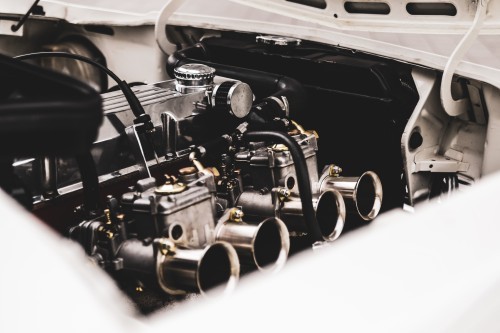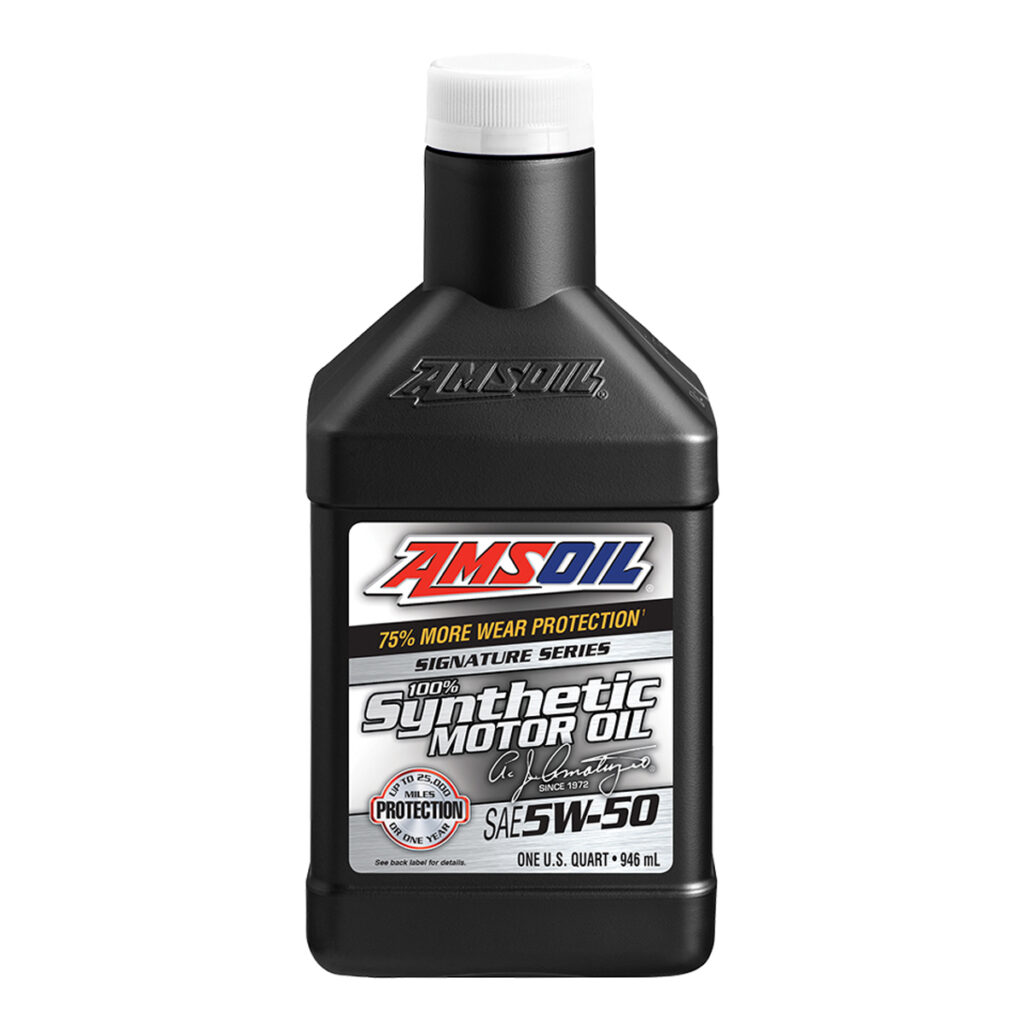For vehicle owners, a noisy differential may be an irritating and worrying problem. The differential, an important part of a car’s drivetrain, distributes power to the wheels while allowing them to revolve at various speeds. When this crucial component is not working properly, it can cause a variety of unwelcome noises that not only interfere with your driving experience but may also be an indication of underlying issues that, if ignored, might result in more severe damage.
It is impossible to stress the importance of choosing the proper gear oil while trying to solve a loud differential. The complicated gears and parts inside the differential are lubricated, cooled, and protected by gear oil, which is the differential’s lifeblood. To ensure a quieter and more dependable ride, selecting the proper gear oil for your vehicle’s needs will help lessen or eliminate those annoying noises.
Understanding Differential Noise:
Differential noise causes include the differential being subjected to a variety of pressures and forces during operation, which might result in noise production. It is crucial to comprehend the underlying reasons for differential noise for efficient troubleshooting and gear oil selection. Typical reasons include:
- Wear and Tear: The differential’s gears, bearings, and other parts may deteriorate with time because of friction. Increased noise, poor gear meshing, and misalignment are all effects of this wear.
- Improper Lubrication: Increased friction, heat, and wear can be brought on by gear oil that is insufficient or deteriorated because it fails to properly lubricate the differential components. The operation may get loud as a result.
- Incorrect Gear Meshing: Uneven load distribution and excessive noise may result from improper gear meshing within the differential. Inadequate adjustments, wear, and manufacturing flaws can all lead to poor gear meshing.
Identifying Noisy Differential Symptoms:
For early discovery and resolution, it is essential to recognize the symptoms of a noisy differential. Different sounds can signify distinct problems:
- Whining or Howling Sounds: Whining or howling sounds are sometimes attributed to worn-out gears, insufficient lubrication, or misaligned parts, especially when acceleration or deceleration is involved.
- Grinding or Clunking Noises: When rotating or shifting gears, grinding, or clunking noises may indicate problems with worn bearings, broken splines, or loose parts.
- Vibration and Resonance: An uneven or misaligned differential can produce excessive vibration or resonance, which can be noisy and uncomfortable.

Factors Influencing Gear Oil Selection:
Numerous crucial aspects that have an immediate influence on the efficiency and noise-reduction abilities of your noisy differential must be considered when selecting the best gear oil. These elements comprise:
- Viscosity Rating: The viscosity of gear oil is expressed as a numerical value and describes the oil’s resistance to flow. To achieve optimum lubrication and noise reduction, differentials require precise viscosity values. Though they could give higher fuel efficiency, lower viscosity oils might not offer enough noise and wear protection.
- Additives: Gear oils often contain additives that enhance their performance and protection qualities. Key additives to consider include:
- Friction Modifiers: These additives improve efficiency and lower noise production by minimizing friction between gear surfaces. They are especially important for differentials with minimal slip.
- Extreme Pressure Additives: Extreme pressure additives provide a shield on gear teeth that stops metal-to-metal contact under heavy loads and lowers noise from wear.
- Anti-Wear Agents: These additives reduce wear and increase the lifespan of differential components which results in an operation that is quieter.
Differential Type:
The kind of differential in your car affects how much gear oil is needed:
- Open Differential: Open differentials, which are frequently seen in ordinary automobiles, could require different gear oil than more sophisticated differential types.
- Limited Slip Differential: To guarantee adequate friction and noise reduction, limited slip differentials frequently need specialized additives.
- Locking Differential: Specific gear oils that improve engagement and lower noise during locking and unlocking motions may be beneficial for locking differentials.
Choosing the Best Gear Oil:
Choosing the finest gear oil to deal with a noisy differential requires a methodical approach that considers several parameters. How to make an educated choice is provided here:
- Consider the Differential Type: Different differentials have different specifications. For the best noise reduction if you have a limited slip or locking differential, seek gear lubricants with additives developed for those types.
- Select the Appropriate Viscosity: Select a viscosity grade that meets the needs of your vehicle. Usually, a slightly thicker oil can assist in reducing noise while still meeting the manufacturer’s requirements.
- Opt for High-Quality Brands: Select a viscosity grade that meets the needs of your vehicle. Usually, a slightly thicker oil can assist in reducing noise while still meeting the manufacturer’s requirements.
- Look for Gear Oils with Noise-Reducing Additives: Give friction modifiers, extreme pressure additives, and anti-wear chemicals in gear lubricants top priority. These chemicals aid in improved protection and noise reduction.
- User Reviews and Expert Recommendations: Consult online evaluations and advice from experts who have dealt with loud differentials in the automobile industry or on forums for drivers. Experiences in the real world can give essential information about the efficacy of different gear oils.
- Performance vs. Budget: While it is important to take your budget into account, keep in mind that spending more money on higher-quality gear oil with noise-canceling additives can help you save future maintenance expenses and offer a quieter driving experience.
Top Gear Oils for Noisy Differentials:
Certainly, the following is a succinct list of reliable gear oils that are recognized to quiet down loud differentials:
- Royal Purple Max-Gear: High-quality synthetic oil with innovative additives.
- Friction reducers are a feature of Red Line Synthetic Gear Oil.

- Mobil 1 Synthetic Gear Lube: Provides better shifting and quiet operation.
- Full synthetic gear oil from Valvoline called SunPower is intended to perform quietly and with longevity.

- Amsoil Severe Gear Synthetic Gear Lube: Reduces noise and offers prolonged gear protection.

- Lucas Oil Heavy Duty Oil Stabilizer: A noise- and lubrication-improving additive.

Tips for Noise Reduction and Differential Maintenance:
Effective differential noise reduction and long-term smooth operation require both appropriate maintenance procedures and preventative actions. Here are some helpful hints to make your driving experience quieter and more pleasurable:
Maintain Proper Gear Oil Levels:
- Follow the manufacturer’s suggested time intervals for checking and topping up your vehicle’s gear oil.
- Boost as necessary: To ensure appropriate lubrication and noise reduction, make sure gear oil levels are within the recommended range.
Perform Regular Differential Inspections:
- Visual inspections: Check the differential sometimes for leaks, fractures, or wear.
- Resolve difficulties quickly: Consult a qualified technician for an evaluation and repairs if you hear any strange noises, feel any unusual vibrations, or detect any fluid leaks.
Use High-Quality Gear Oil:
- Keep to the advised guidelines: Always select gear oil that satisfies or exceeds the manufacturer’s requirements for your car.
- Choose noise-cancelling additives: Choose gear oils with additives that reduce noise, such as friction modifiers.
Drive Cautiously:
- Driving gently means avoiding quick acceleration, sharp twists, and stops since these movements might strain the differential and increase noise.
- Practice calm and smooth gear shifts to lessen the pressure on the differential’s parts.
Frequently Asked Questions (FAQs):
What kind of gear oil lessens noise?
Differential noise can be efficiently reduced by gear lubricants that contain friction modifiers, extreme pressure additives, and anti-wear compounds. These additives make the system run more quietly by reducing friction, guarding against wear, and enhancing gear meshing. To reduce noise, search for gear oils that have been specially prepared with these ingredients.
Which additive is most effective for the noisy differential?
One of the best additions for lowering noise in a differential is friction modifiers. These additives improve gear engagement and lubrication, resulting in quieter operation and less friction-induced noise.
What is the ideal differential oil?
The best synthetic gear oil is often thought to have the right viscosity grade and additives for the type of differential you have. To find synthetic gear oils that fulfill manufacturer requirements and minimize noise, look for trusted brands such as Royal Purple, Red Line, Mobil 1, or Valvoline.
How can differential noise be eliminated?
Differential noise reduction can be simply done in the following steps:
- Select the correct additive-containing gear oil.
- Maintain the amount of gear oil and do routine maintenance.
- Avoid making sudden, violent movements while driving.
- Keep your Tyres rotated and balanced.
- Immediately fix any mechanical problems.
Conclusion:
A mix of knowledge, appropriate maintenance, and the optimum gear oil are needed to handle loud differentials in the search for a quieter and more pleasurable driving experience. Differential noise may be a sign of underlying problems that, if ignored, can necessitate more involved and expensive repairs. You may successfully manage the process of choosing the best gear oil and putting into practice efficient noise reduction measures by adhering to the tips and instructions provided in this article.

